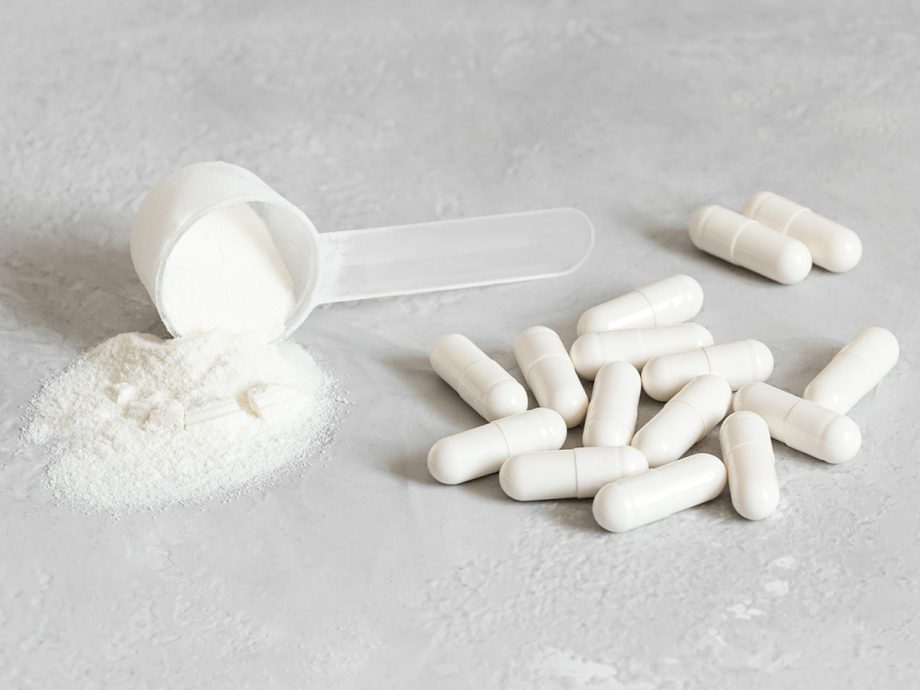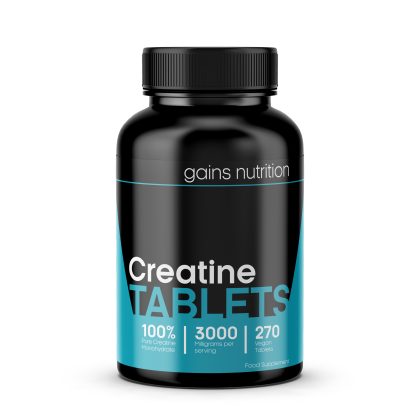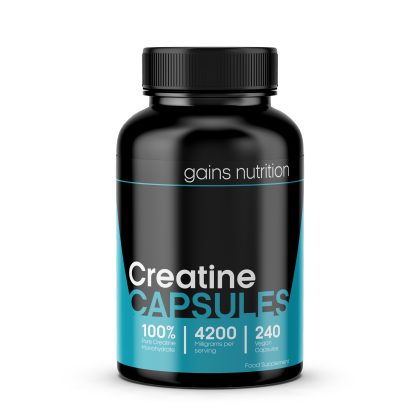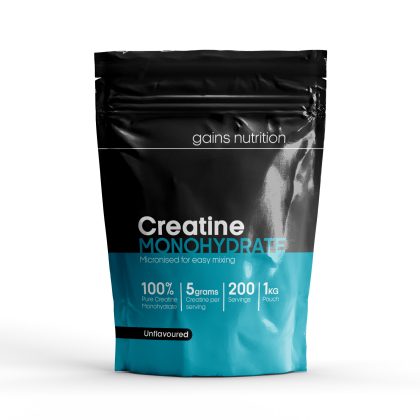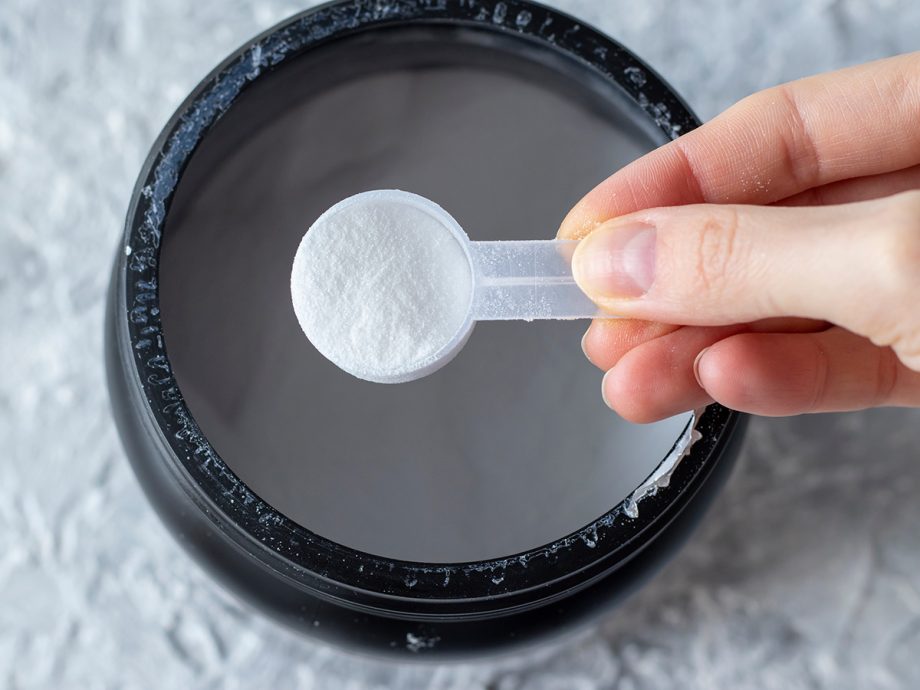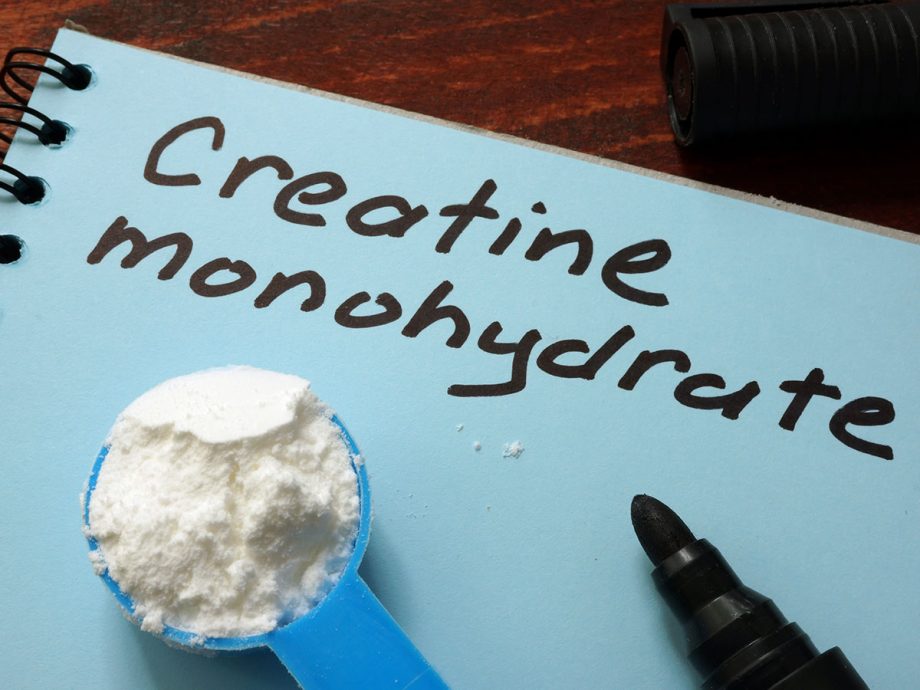Creatine stands out as a highly sought-after performance-enhancing supplement for athletes aiming to push their limits and weightlifters striving for greater gains. But does the method of consumption impact its effectiveness?
With a plethora of supplement forms on the market, determining the best option for you can be challenging. Let’s delve into the various forms of creatine available and their potential impacts on results.
Article Contents:
- What Is Creatine?
- What benefits does creatine have?
- When should you take creatine?
- How often should I take creatine?
- When taking creatine should I drink more water?
- Creatine Pills vs Powder: Advantages and Disadvantages
- Does creatine make you bigger?
- Does creatine help you build muscle?
- Can creatine help you gain weight?
- Is creatine a steroid?
- Is creatine good for you?
- Does creatine increase testosterone?
- How long does creatine take to work?
- Does creatine affect your mood?
- Does creatine aid weight loss?
- Is creatine safe?
- Are there any negative effects of taking creatine?
- Key Takeaways
What Is Creatine?
Creatine, a naturally occurring molecule in the body, can also be obtained from dietary sources such as seafood, eggs, and meat.
Comprised of three amino acids – glycine, arginine, and methionine – creatine serves as a reserve energy source rather than a quick fix for immediate gains.
What benefits does creatine have?
Research has demonstrated that creatine supplementation can enhance exercise performance, address disorders related to creatine metabolism or transport, increase muscle strength and mass, and combat age-related muscle loss (sarcopenia). Athletes primarily use creatine to promote muscle growth.
When should you take creatine?
The timing of creatine intake does not impact its effectiveness; it can be consumed at any time of the day without affecting its efficacy.
How often should I take creatine?
Numerous studies indicate that daily intake of creatine effectively enhances exercise and strength performance. A recommended approach is to start with a loading phase followed by a maintenance phase, both involving daily creatine consumption, to optimize results.
When taking creatine should I drink more water?
When incorporating creatine supplementation into your routine, it’s essential to replenish the water pulled into the muscles by drinking more water than usual. However, excessive water intake can lead to bloating, so it’s advisable to gradually increase your water consumption until you find the right balance for you.
After researching this beneficial supplement, you might be unsure whether the powder or pill form is superior. While opinions vary, many suggest there’s minimal distinction between the two.
Nevertheless, before embarking on your loading phase, it’s worth considering some minor advantages and disadvantages. Let’s explore the pros and cons of creatine pills versus creatine powder.
Creatine Pills vs Powder: Advantages and Disadvantages
Creatine Powder
Let’s examine the advantages and disadvantages of creatine powder first. One drawback is its tendency not to transport easily. Those who have stored it in a shaker in their gym bag may find that the measured amount doesn’t always end up being consumed. Residue can cling to the container’s sides and corners, occasionally congealing inside.
Moreover, it may not always blend smoothly, potentially imparting a bitter chemical taste to your beverage. Despite these minor inconveniences, creatine powder offers numerous health benefits.
On the other hand, pills provide a neater option, allowing for easier measurement without the mess. However, what are the positives of using powder?
Powder tends to be more cost-effective, which is advantageous given the monthly expenditure on supplements. During the loading phase, when you may be consuming three to five times the recommended dose, opting for pills would require taking three times as many, resulting in quicker depletion of your supply at the beginning of each cycle.
Creatine Pills
When consumed in pill form, creatine requires digestion before your body can utilize it, whereas as a powder, it can be more readily absorbed. This makes powder a preferred choice, especially for individuals regularly taking multiple supplements.
Why introduce an additional obstacle for your digestive system when a more efficient alternative exists? Adding creatine pills to your regimen alongside vitamin tablets and other supplements can create a cumbersome routine.
But why does the speed of creatine digestion matter? While there’s ongoing debate about the optimal timing for creatine consumption, there’s no conclusive evidence to suggest whether it’s best taken before or after exercise.
However, a consensus exists on implementing a loading phase, wherein you consume three times the normal daily amount of creatine every day for two weeks to saturate your cells. The rate at which creatine is absorbed into your system may not significantly impact workout results, provided it remains consistently loaded in your system.
Opting for powder allows for greater versatility, enabling you to concoct custom health blends according to your preferences. Regardless of the form you choose, it’s a reliable method to achieve desired gains.
As you progress as an athlete and gain insight into your body’s capabilities and goals, it’s advisable to tailor your supplement intake accordingly. By identifying your objectives, you can streamline your regimen and create personalized blends based on your preferences.
Additionally, mixing creatine powder with sugar-laden workout beverages can elevate insulin levels, offering another potential benefit.
Does creatine make you bigger?
Regardless of its form, creatine has consistently demonstrated the ability to enhance strength, fat-free mass, and muscle morphology when combined with heavy resistance training, surpassing the benefits of resistance training alone. By augmenting creatine storage and accelerating ATP regeneration, creatine supplementation enhances performance and training capacity.
Does creatine help you build muscle?
Creatine plays a crucial role in generating energy for muscles within the body. The majority, about 95%, of the body’s creatine stores reside in skeletal muscle.
Creatine expedites the natural process of ATP (Adenosine Triphosphate) production, which is rapidly depleted during high-intensity exercise. By supplementing with creatine, individuals can enhance their capacity to store more creatine, thereby increasing ATP production during exercise.
Muscle tissue stores creatine in the form of phosphocreatine, which is utilized during high-intensity activities like weightlifting to provide additional energy to muscles.
Moreover, creatine facilitates water retention in muscle cells, promoting protein synthesis. While it doesn’t directly provide extra energy like caffeine or glucose, creatine augments reserves, enabling individuals to exert greater effort for longer durations, resulting in improved performance and gains.
Can creatine help you gain weight?
Creatine supplementation can lead to weight gain in the form of lean body mass. As creatine promotes muscle growth, an increase in weight is a natural outcome. Additionally, water retention in muscle cells, a common effect of creatine intake, may contribute to weight gain, albeit not visibly apparent on the body. Importantly, supplementing with creatine does not result in gaining body fat.
Is creatine a steroid?
Creatine differs from steroids in its effects on the body and classification. While steroids are categorized as drugs, creatine is regarded as a natural supplement. Anabolic steroids, synthetic versions of testosterone, enhance muscle mass by boosting muscle protein synthesis through genetic modulation of muscle-specific genes.
In contrast, creatine supplementation increases muscle protein synthesis by drawing water into muscle cells. Moreover, creatine elevates ATP production, which, over time, enhances muscle mass by improving training performance.
Is creatine good for you?
Creatine offers numerous health benefits, including enhanced neurological and cognitive function. In older adults, creatine supplementation is associated with improved fatigue resistance, increased strength, muscle mass, bone mineral density, and overall performance in daily activities.
Does creatine increase testosterone?
Creatine supplementation has not been demonstrated to elevate testosterone levels. Numerous studies have consistently found no significant changes in testosterone levels, including total testosterone, free testosterone, and DHT (a testosterone metabolite associated with male pattern hair loss), following creatine supplementation.
How long does creatine take to work?
It typically takes 7 to 28 days to observe the energy-enhancing effects of creatine.
Does creatine affect your mood?
Although further research is warranted, several studies have indicated a favorable impact of creatine on mood. Research published in the Journal of the International Society of Sports Nutrition suggests that creatine supplementation can enhance mood and alleviate depression symptoms in adolescent females. Moreover, another study found that creatine improved mood in individuals with Parkinson’s Disease. Additionally, a clinical trial published in the Journal of Psychopharmacology demonstrated that creatine reduced mental fatigue in healthy individuals and enhanced mood while decreasing fatigue in sleep-deprived individuals.
Does creatine aid weight loss?
Creatine is not intended for weight loss purposes, so if shedding pounds is your goal, it’s not the right supplement for you. However, creatine is effective for building lean muscle mass.
Is creatine safe?
Currently, the use of creatine is regarded as both safe and ethical. When consumed in appropriate doses, creatine is generally safe for up to five years. As with any supplement, it’s important to select a creatine product that adheres to recommended manufacturing standards and undergoes third-party testing to ensure quality, such as Gains Nutritions Creatine Monohydrate Powder.
Are there any negative effects of taking creatine?
Research indicates that there are no established adverse health effects for healthy individuals when using creatine, whether in the short or long term. Any demonstrated health risks are typically associated with individuals already diagnosed with specific conditions like bipolar disorder or renal disorders.
While some individuals may experience mild side effects such as bloating, weight gain, water retention, or gastrointestinal discomfort, these are often attributed to high creatine dosages. Adjusting the dosage may help alleviate these side effects. Overall, for the general population, there are no documented negative side effects associated with creatine supplementation.
Key Takeaways:
Creatine, composed of amino acids, is primarily obtained from dietary sources. It enhances muscle hydration and protein synthesis.
Foods rich in protein, such as fish, eggs, and meat, provide ample creatine. Alternatively, supplementation offers various health benefits and aids in achieving weight goals safely.
For ease, creatine pills are a convenient option for supplementation. However, they may not be as readily absorbed as creatine powder, which quickly enters the body.
Yet, creatine powder may be inconvenient for individuals with active lifestyles due to its lack of portability. In such cases, opting for creatine pills is preferable.
Research suggests minimal disparity between creatine powder and pills, leaving the choice to personal preference.
Ultimately, the decision hinges on individual preferences. Would you prefer quicker absorption with creatine powder or the convenience of pills?
Both forms have their pros and cons, but creatine is indispensable for muscle building. If you’re struggling to bulk up, creatine supplementation may be the key to rapid gains.
